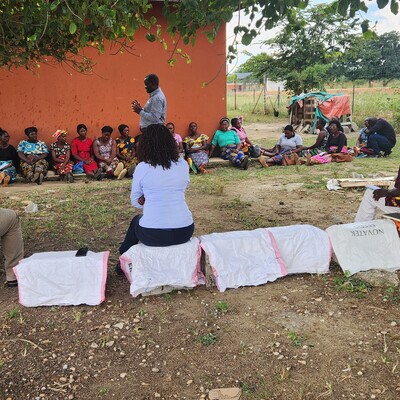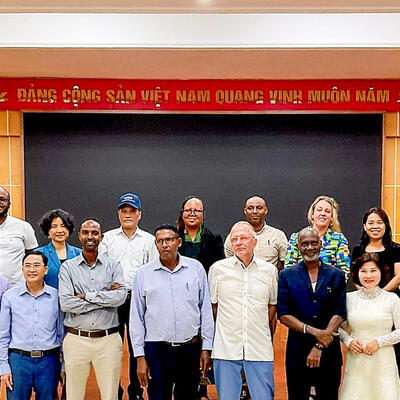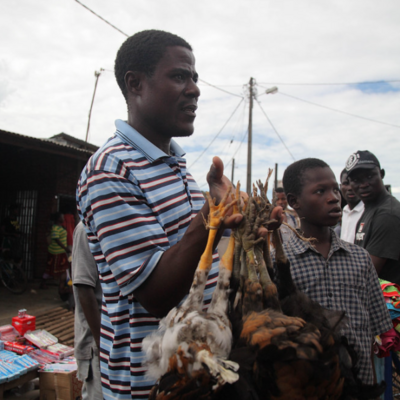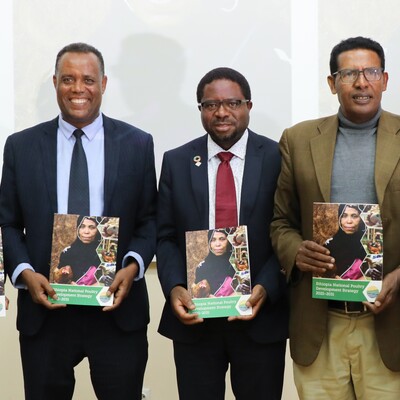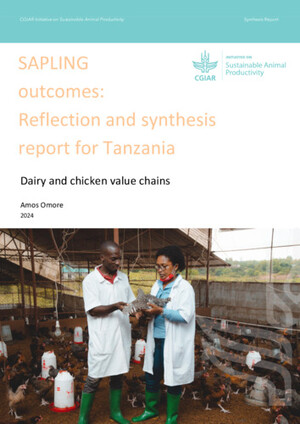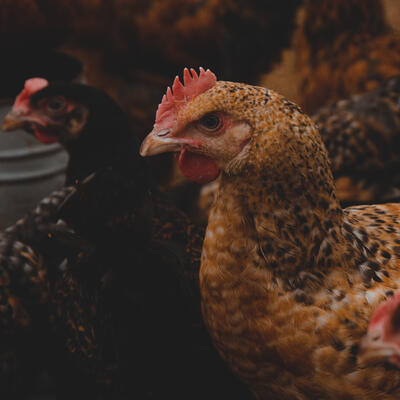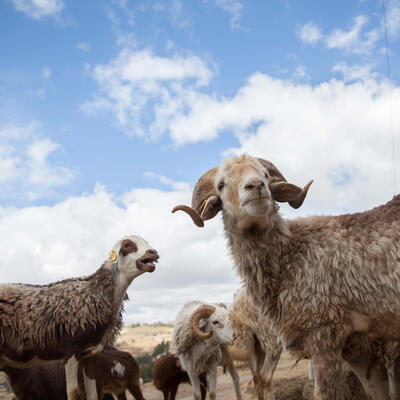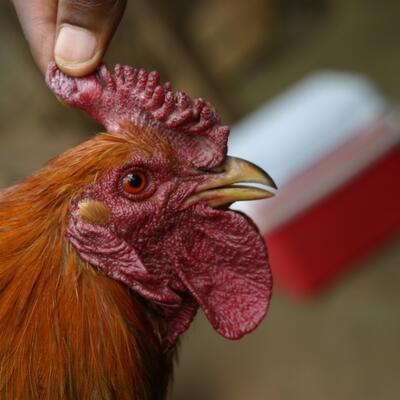
Voices on chicken genetics: Setting up systems to promote poultry businesses
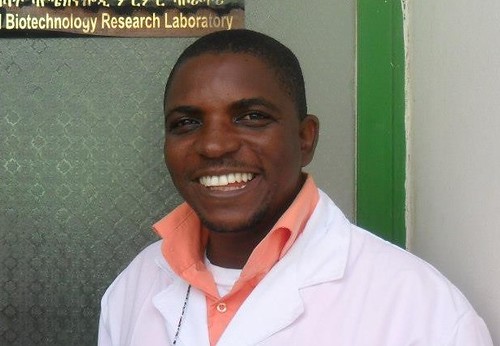
Abdulmojeed Yakubu is subnational coordinator for Zone 4 (Nasarawa State) for ACGG Nigeria (photo credit: ILRI-BecA Hub).
Abdulmojeed Yakubu, subnational coordinator in Zone 4 in Nasarawa State, Nigeria, introduces himself and his work with the African Chicken Genetic Gains (ACGG) project in one of a series of portraits of key people in the project.
Tell us about your background
I held a bachelors degree in agriculture (animal science) from Edo State (now Ambrose Alli) University, Ekpoma, Nigeria before acquiring an MSc and PhD degree in animal science with specialization in animal breeding and genetics from the University of Ibadan in Nigeria.
What is your role in ACGG and what are you currently working to accomplish?
Presently, I serve as subnational coordinator of the African Chicken Genetic Gains (ACGG) project in Zone 4, Nasarawa State, Nigeria. Currently, I am actively working with a team of field officers in day-to-day performance data collection on the four Nigerian indigenous chicken strains and the two imported tropically-adapted strains that are being tested in six local government areas (LGAs) in the state. I work with the Nigerian project team’s modalities for periodic national and community innovation platforms (IP) meetings that are geared primarily towards co-creating solutions to the myriad of problems affecting farmers (especially women and youth) in the rural areas. Project publicity, monitoring and evaluation are also part of my responsibilities.
What is your current and upcoming work in ACGG or outside the project?
I intend, with the permission of the ACGG-Nigeria, to discuss the positive impact so far of the project with the state’s commissioner of agriculture to see whether the government can get involved in boosting poultry production in the rural areas. I also intend to ensure that the farmers’ cooperative groups being formed in the 12 project villages in the state are officially registered and sustainable.
Why does this project matter and what gets you excited about it?
The project is bringing tropically-adapted chicken strains whose performance supersedes that of the existing local strains. The exciting thing is the fact that the vulnerable (women and youth) in terms of rural poverty are the primary target of the ACGG project. Efforts made to increase the production and productivity of their chickens will go a long way in improving their incomes and standard of living: Enhancing the chicken value chain component so that all relevant stakeholders have a role to play is also a laudable idea.
What about the project causes concern for you and how could this be addressed?
When farmers have eventually made up their minds on the choice of chicken strains, irregular and untimely delivery of the categories of birds they want may distort their production cycle and their patronage and income may be affected. We may have to put in place a system whereby in each local government areas, there is a contact person who takes orders from the farmers and gives this information to the major chicken distributors who in turn get back to the farmers through that person. The current field officer(s) or any other person(s) appointed by the farmers based on trust may fit into this arrangement.
What do you foresee as the lasting impact of ACGG?
The long-term genetic gain aspect of the project which is expected to ensure the continuous availability of genetically-improved chicken strains based on farmers’ choice as well as the innovation platforms which could transform to other social and business groups to promote poultry business.
Any other thought?
The success of the ACGG project could serve as a wake-up call for other poverty alleviation projects that focus on livestock and target women and youth.





